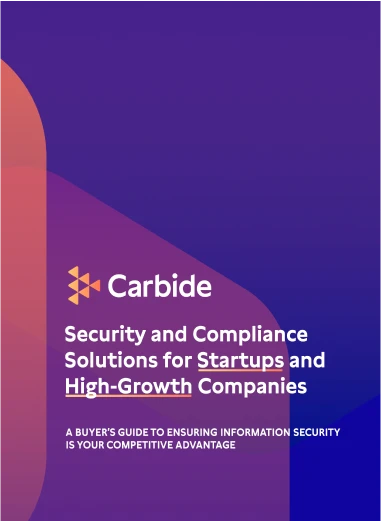Update: The ISO 27001:2013 framework has been updated to ISO 27001:2022, and we’ve dedicated an entire blog post to provide you with a detailed overview. For an in-depth understanding of these changes and their implications, we invite you to read our latest article linked here.
Cybersecurity and data protection are serious concerns for businesses and customers, making it essential for companies to implement the highest information security standards. Getting compliant with ISO 27001 demonstrates to your customers that you have a robust ISMS in place and are constantly working to protect all information in your company.
The International Standards Organization (ISO) remains committed to helping global businesses by developing standards based on input from subject matter experts worldwide. The ISO/IEC 27001 standard provides a framework for an organization’s Information Security Management System (ISMS). Although originally published by both the ISO and International Electrotechnical Commission (IEC), the latest revision forms part of the ISO 27000 family of standards for information security management.
Quick Answers to All Your ISO 27001 Questions
The ISO is an independent body that works with knowledge experts from around the world to promote standardization. Government agencies, private companies, and other professional bodies use the ISO standards to evaluate how well a company performs against international competitors. Certification with ISO usually indicates a commitment to quality processes, responsible practices, and elevated security while maintaining technical expertise.
If you’re considering setting up an ITSM in your organization that complies with almost every data protection law, ISO 27001 is the place to start. Here are some of the main questions and answers for anyone considering implementing the ISO 27001 standard.
What is ISO 27001 Compliance?
ISO 27001 provides a set of requirements, considerations, and evaluation criteria for the information security controls implemented at an organization. Compliance depends on managing the risks involved in the company’s IT systems and data management practices. Demonstrating compliance means having a living set of documentation that describes and controls all information security practices, procedures, and policies.
What is Self-Attestation under ISO 27001?
Achieving compliance and certification under ISO 27001 is something a company should announce to the world, as it is the highest standard of data privacy and information security. To achieve certification, organizations have several routes available, including self-attestation. Although many companies may opt to bring in outside resources that guide compliance and certification, when organizations self-attest (or self-certify), all compliance evaluations, recommendations, and interventions come from inside the company. Once the organization is ready for certification, demonstrating compliance comes from the internally developed ISMS and associated documentation.
How to Conduct an Internal Audit
Internal audits (covered in clause 9.2 of the standard) uses a five-point checklist to evaluate your current controls and procedures. For organizations following the self-attestation route, leaders will need to read and understand the standard before establishing new policies that cover the requirements defined in ISO 27001.
Once new policies are in place, the following five steps will help establish the current state of the ISMS in the organization:
- Documentation review – Organizations should start by reviewing all documents relating to your current ISMS framework and identifying the stakeholders to establish the audit scope. You can then easily request specific documents during the audit.
- Management review – Before creating the audit plan, discuss the scope and requirements with management and agree on a schedule, budget, and resource allocation. You can also establish the required checkpoints to keep everyone updated about the progress.
- Field review – Plan and execute the audit by observing the current processes in action and discussing specific details with frontline workers. You will conduct different tests, record the results, and review all ISMS-related data or documents.
- Analysis – Once you’ve collected the evidence, you can analyze the results and evaluate your organization’s current risk while developing a treatment plan that will help achieve your control objectives.
- Report – The final step is to generate the audit report and discuss all findings with the stakeholders. The report format should include the scope, executive summary, distribution lists, in-depth analysis of any findings, and a detailed statement on recommendations.
Redo the audit to monitor performance until the current ISMS satisfies all the ISO 27001 requirements.
How Does Licensing and Copyright Work?
All standards that cover the ISO framework are copyrighted by the organization. When you purchase a standard, you have a limited use license and agree to respect the terms of the license, meaning the dissemination and uncontrolled disclosure of the standard remains restricted.
How to Get ISO 27001 Lead Auditor Certification?
Becoming a certified lead auditor for ISO 27001 requires completing a course (in person or online) from a certified training provider. Online courses are available from several registered training organizations, and you’ll be able to achieve certification through programs like CIS, making you a recognized ISO 27001 expert.
The courses will cover becoming a risk analyst (based on ISO 31000), lead implementer, architect, and finally a lead auditor under the ISO 27001 modules.
Demonstrable ISO 27001 Compliance with Carbide
Carbide helps organizations gain control over all their data protection and information security practices. If you need to establish an ISO 27001 compliant ISMS, Carbide can help develop the policies, evaluate your gaps, and implement the necessary controls quickly. We also provide hands-on guidance, allow you to generate new policies in minutes, and help you delegate the related tasks to different teams and individuals in the organization. To discuss your ISO 27001 compliance needs with a team of experts, reach out to Carbide today.
An Overview of ISO 27001:2022


